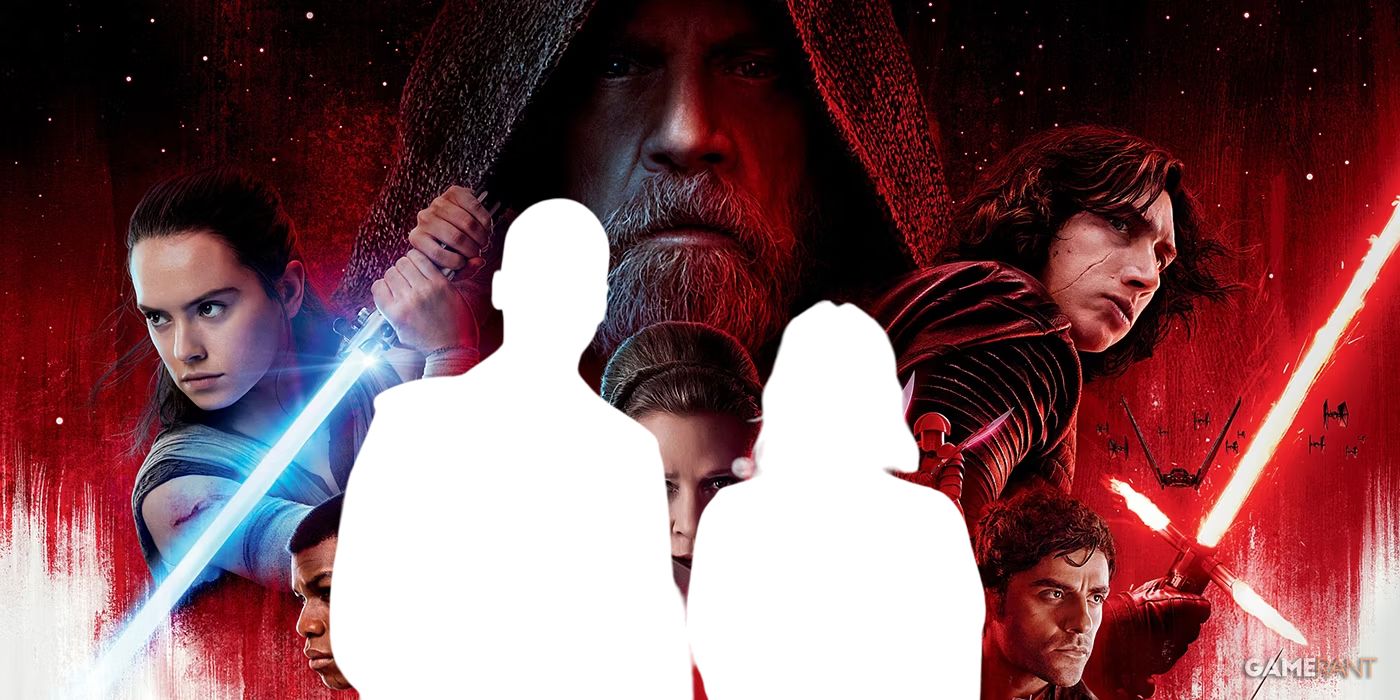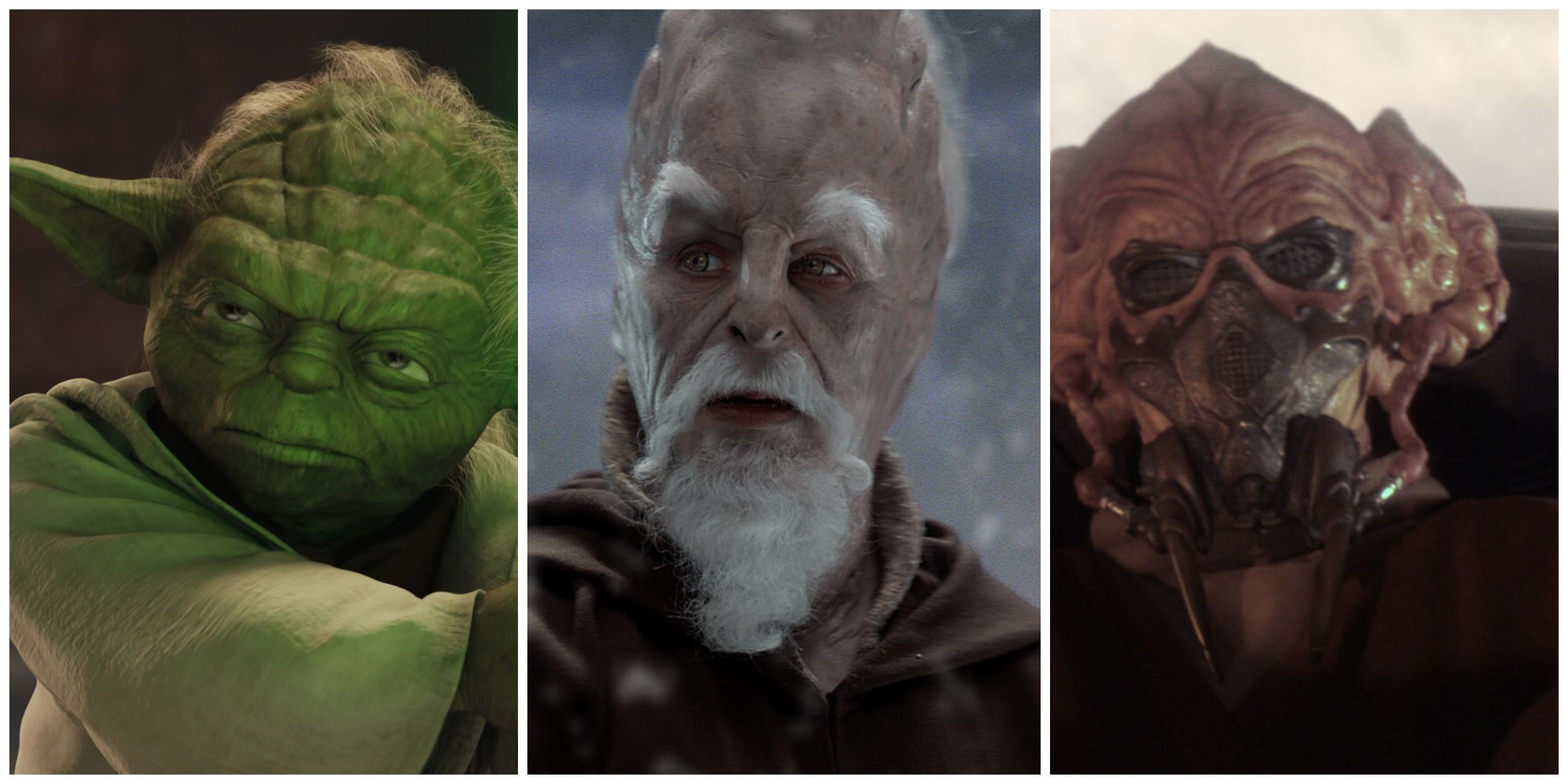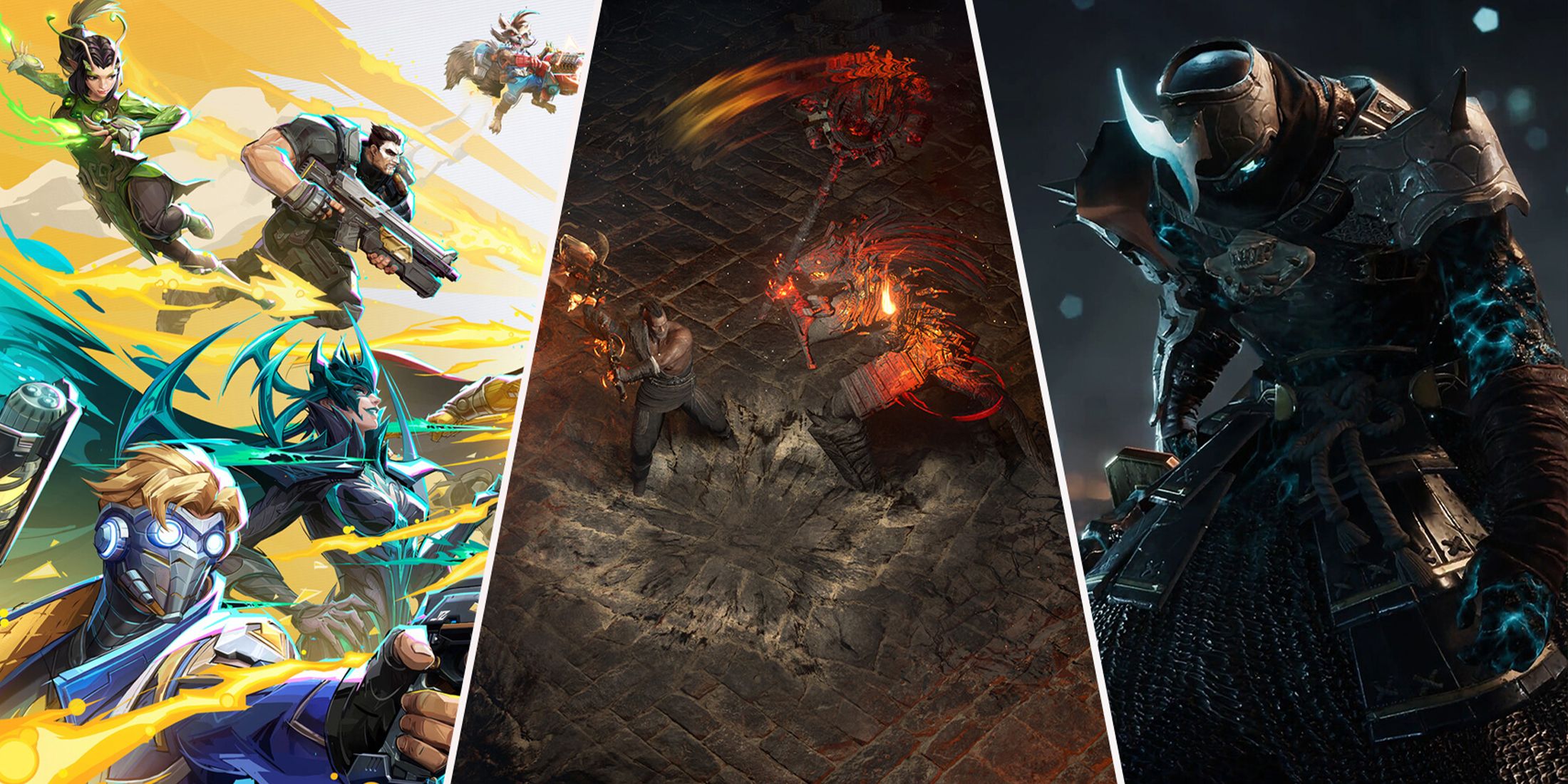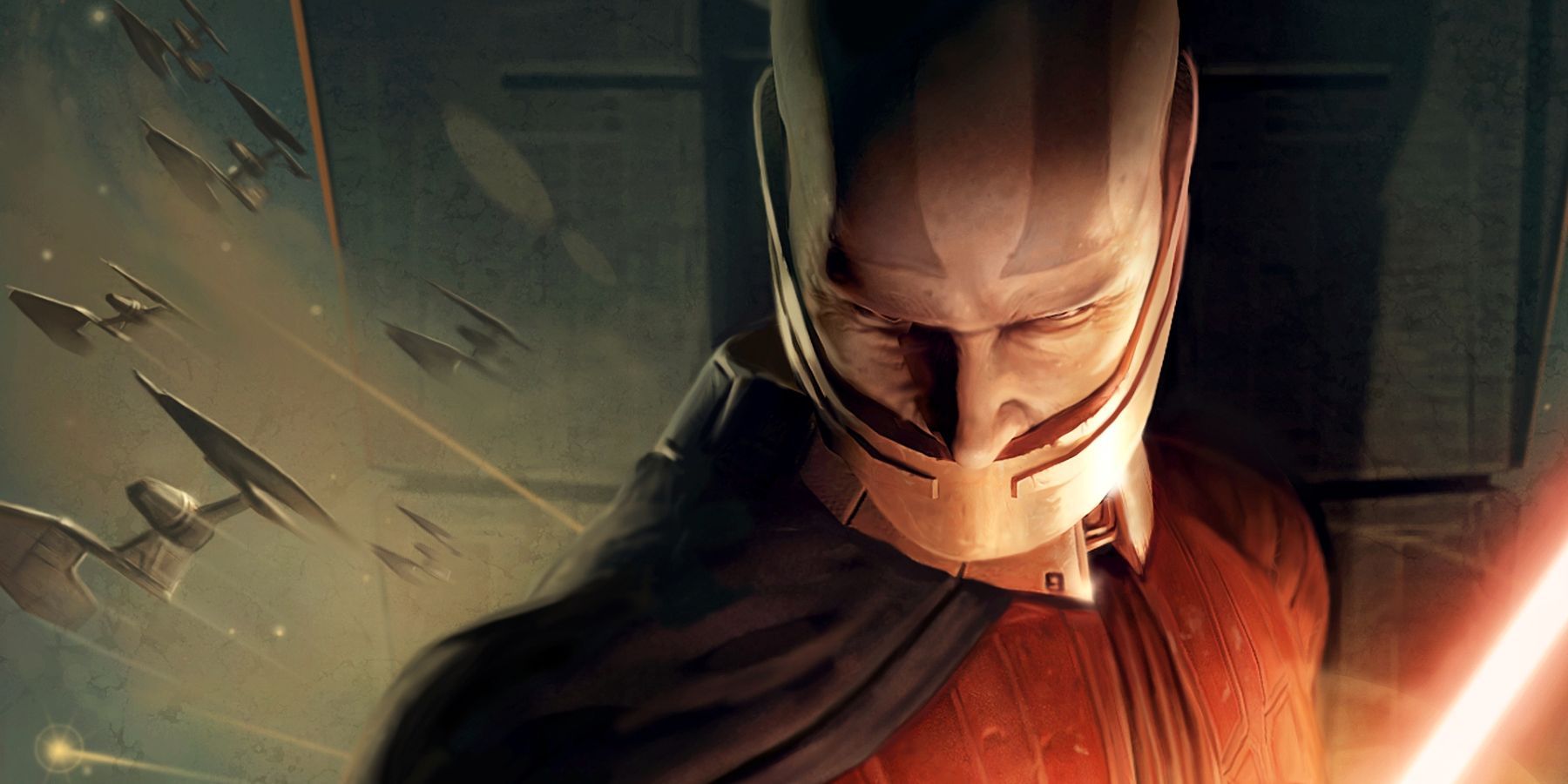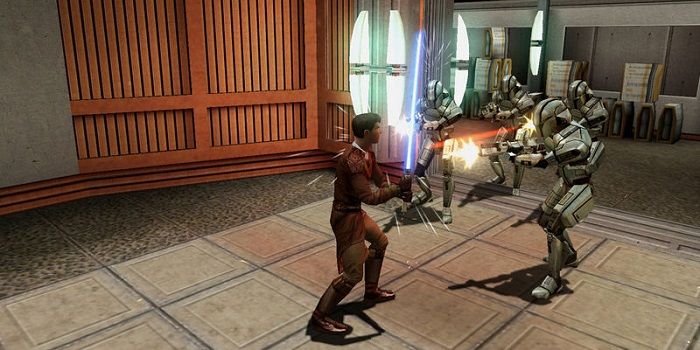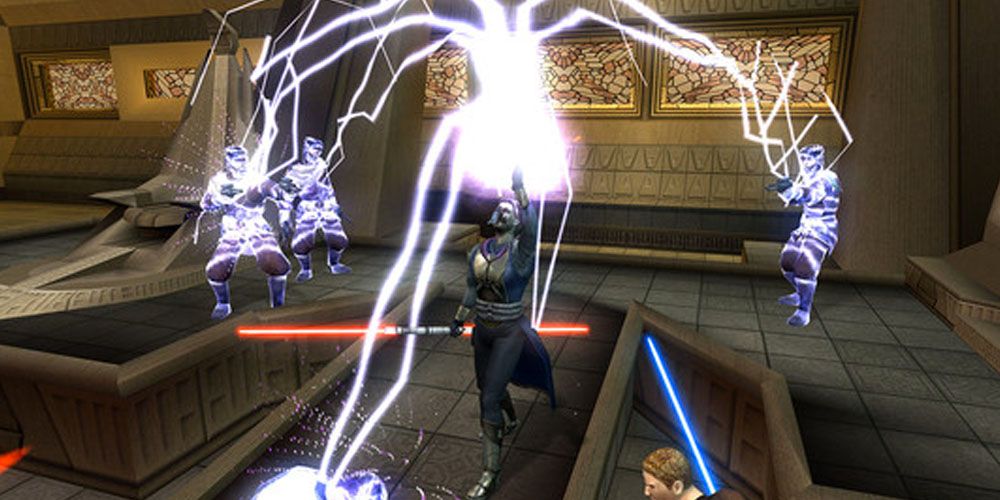Of the vast library of Star Wars games amassed over the years, none is more widely adored than Knights of the Old Republic. A gripping main narrative, some first-class world-building, and characters that each have their own unique personality and motivations, all come together to make Knights of the Old Republic not just an excellent Star Wars game, but a superb RPG.
For years, fans have been asking for a remake of the game. Not just a port to current consoles, but a fully-fledged remake, just like Final Fantasy 7 recently received. Fans are getting what they asked for, as a KOTOR Remake was announced last year, coming exclusively to PlayStation 5 and PC. According to a recent rumor surrounding KOTOR gameplay changes, Aspyr is apparently revamping the combat mechanics from the original, but it really shouldn't worry fans.
Explaining The Faults With KOTOR's Original Combat
Knights of the Old Republic still holds up today in many ways. Its story is still just as compelling, even when the player knows the twists it takes, the KOTOR characters are just as relatable and unique, and the game has so many world-building references and lore tidbits that subsequent playthroughs are all but necessary to catch them.
However, KOTOR's turn-based combat has not aged so finely. The original game, much like BioWare's titles before it, uses a dice-rolling system, based on tabletop games like Dungeons & Dragons. For every attack that was made by the player, a hidden set of dice behind the scenes would roll, dictating whether the hit lands or not. This system is the same for all attacks in the game, from lightsaber flurries, to blaster power shots, and force powers, everything is dictated by the roll of a die.
In theory, this system is absolutely functional, and it is, but it doesn't do a great job of engaging the player. In most combat scenarios in the original KOTOR, the player will select a series of attacks while the game is paused, and watch them play out before pausing the game again, and selecting the attacks they'd like to use next. While the action is technically in real-time, it's often beneficial, and even necessary in some harder fights, to pause the action repeatedly so that the next few moves can be planned out in advance.
This does lead to some potentially engaging strategies, but the stop/start nature of the combat encounters can tend to lead the player feeling a little disconnected to the action on-screen. Especially when attacks repeatedly miss, no feedback is given on what the player did wrong, they're simply told that hidden factors have prevented their attack from landing. When returning to the game today, this lack of feedback can be pretty jarring at times, with the KOTOR player-character shown visibly to be hacking away at an enemy, and the enemy's animation to seemingly confirm the hit, but the game states that the attack missed.
Comparing this to the average modern day action game, in something like Dark Souls, each swing of the player's sword has a dedicated animation that either visibly shows that the hit landed, or missed. Immediately, the player is able to tell what they did that scored them a hit, or what they did wrong that caused a miss, and can therefore use that to inform their next move. In KOTOR, the player can't adapt or change their gameplay style or inputs to ensure success, they just have to sit there and hope their attack lands.
KOTOR Remake: Switching Things Up, But Keeping The Original Essence
The lack of player engagement with the original KOTOR's combat is a fairly significant problem when replaying the game today. While KOTOR is certainly one of the best Star Wars games, its turn-based gameplay is never the reason it's placed on top 10 lists. That's why fans should welcome the idea of a gameplay switch-up, if it's done right, it could make KOTOR one of the greatest RPGs of all time, and take it from a near-perfect game to a perfect one.
Although it seems a little daunting at first, fans aren't wrong to feel skeptical about a change to one of their favorite games. However, the evidence that this type of change can work, and even improve on the original, is already there in the form of Final Fantasy 7 Remake. The FF7 Remake managed to keep the essence of the original's combat encounters while completely reworking its combat system, giving it a more action-based form of gameplay.
Iconic moves from the original Final Fantasy 7 were still present in the remake, but were attached to timed abilities that could be used throughout a battle, slowing down time while the player selected the move as opposed to stopping the battle completely. This kept the balancing and essence of the original game, with the timed element imitating the original turn-based combat, while also making the combat feel more engaging by keeping the encounter's momentum moving. This allowed the player to directly control each of their character's swings and slashes.
The same formula could be used for the new Knights of the Old Republic remake. Classic force powers and abilities from the original KOTOR, like Sniper Shot, Critical Strike, and Force Storm could all be mapped to an ability wheel or menu, slowing down time while the player selects one. This would keep the battle intense and engaging, as the player isn't pausing the fight, but would retain the core abilities of the original game that have become a large part of the experience for long-time fans.
Another lesson that the KOTOR remake could take from FF7 Remake is how that game handles companion abilities. In the original KOTOR, swapping between characters at the start of a battle and during it to line up their next few moves was a bit of a chore, with some finicky controls and occasional bugs that would make the companion forget the moves the player had just spent some time selecting.
In the remake, companion actions could be mapped to a few presses of the trigger and bumpers, much like in Final Fantasy 7 Remake. Rather than have to pause and manually cycle between characters, choose their moves, and repeat the process in 30 seconds, the remake could use that slow-time mechanic again to keep the action moving forward, while still keeping the companion gameplay that is vital to the KOTOR experience.
Star Wars: Knights of the Old Republic Remake is in development for PC and PS5.

